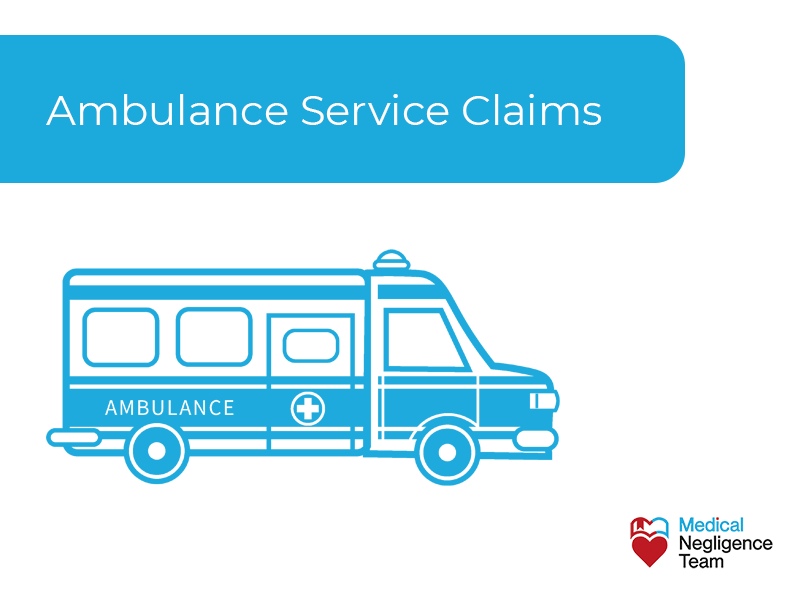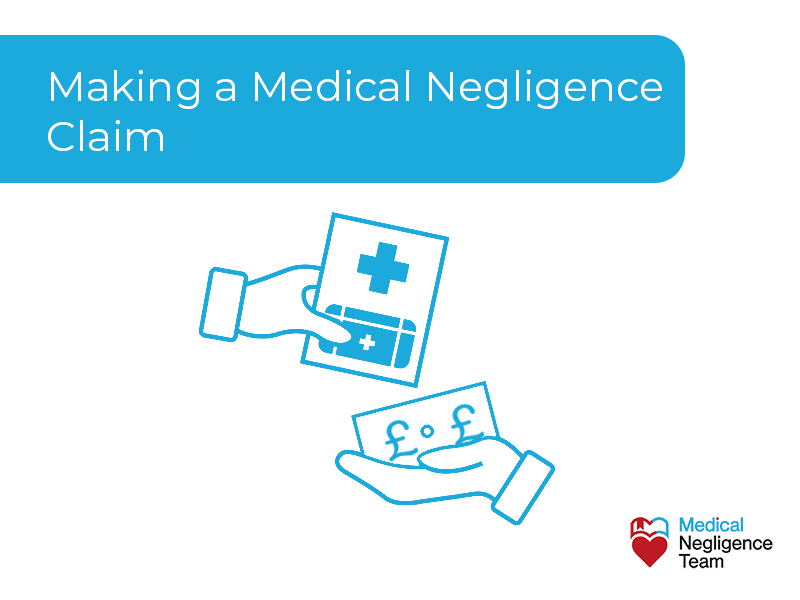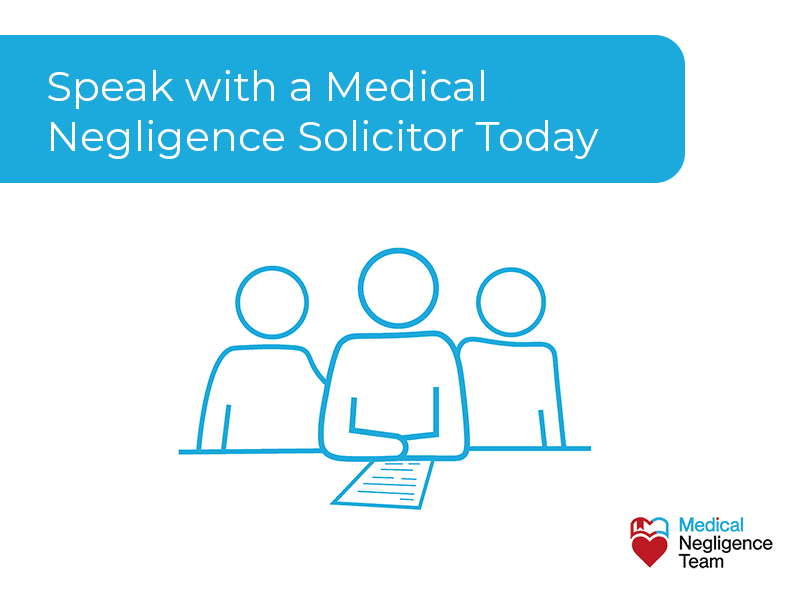Ambulance negligence claims after you suffer injury or ill health due to poor standards of care from the ambulance service.
You or your loved one calls an ambulance in an emergency. The last thing you want or expect are ambulance delays or the ambulance crew to do you more harm than good.
Time is of the essence when in a medical emergency. Every second counts, and any ambulance delays in getting to the scene and to the hospital can only make the situation worse.
NHS targets set acceptable standards for ambulance times, and any deviation from them is unacceptable.
Below professional medical care standards from paramedics and the ambulance service is medical negligence.
A No Win No Fee medical negligence solicitor will help you win your medical negligence compensation claim.

Table of content
What is ambulance negligence?
Ambulance negligence is medical care below acceptable standards from the paramedics and ambulance service. It is medical care that any other medical professional acting in a competent manner would not provide.
Ambulance negligence is when you or your loved one suffer from negligent treatment at the hands of the ambulance crew. It is negligence if your condition worsens because of delays in the ambulance getting to your home.
If the paramedic does not diagnose your medical emergency correctly, it could be ambulance negligence.
There are many types of ambulance negligence that can have serious effects on your health. When you suffer from any type of ambulance negligence, you may have a compensation claim.
What are the types of ambulance negligence?
Types of ambulance negligence include ambulance delays, paramedic negligence, misdiagnosis and mistakes in administering medication.
Each type of ambulance negligence has consequences, from making a bone fracture worse to delays in treatment and even death in some cases.
Common types of ambulance negligence are:

How to Sue the NHS
If you have been a victim of NHS negligence? If you have, you may sue the NHS for damages.
Ambulance delays claim
Ambulance delays in getting to your home or an accident can only make your medical condition worse.
You may be in pain a lot longer than necessary and go into shock. Heart attacks need immediate treatment, and delays can damage your heart.
The NHS sets targets for ambulance response times in a medical emergency, and they are set for prompt treatment purposes.
Delays in the ambulance responding to emergencies can affect your health and even cost a life and you may have an ambulance delay claim.
Failing to equip an ambulance correctly claim
Failing to equip an ambulance correctly can lead to the paramedic crew arriving at your door without the necessary equipment. Every ambulance should be stocked, and the checklist should be double-checked before leaving the bay.
Leaving medication or emergency equipment behind at the hospital is ambulance negligence.
You can claim compensation for the medical negligence and for any damage done to your health.
Poorly trained paramedics claim
Poorly trained paramedics cannot do their job properly and could cause paramedic negligence. A paramedic should be fully trained to respond to every medical emergency and know the protocols for getting you safely to hospital.
If an ambulance arrives without a trained paramedic, a bad situation quickly gets worse. You will not get the correct treatment or any medications administered when you need them. It could be paramedic negligence.
Every ambulance must arrive with a fully-trained paramedic, and anything less is ambulance negligence.
An ambulance not fit for service claim
An ambulance not fit for service may break down on the way or not provide the necessary comfort for passengers. Ambulances have been known to run out of fuel or come to a halt at the side of the road.
Every ambulance must be road worthy and provide a level of comfortable care for the patient.
Bald tires, stuttering engines and old shock absorbers are unacceptable and could be considered ambulance negligence.
Misdiagnosis by ambulance staff claim
Misdiagnosis by ambulance staff costs time in treating you and in alerting the hospital to your condition. Diagnosing you as having a strained wrist while you actually have a broken one could be paramedic negligence.
The misdiagnosis of pneumonia as a bad case of flu or food poisoning as a bad stomach delays your full diagnosis and the correct treatment.
Other misdiagnosis errors by paramedics are:
Delays in treatment due to misdiagnosis is paramedic negligence and should never happen.
Administering an incorrect medication claim
Administering an incorrect medication, such as penicillin, to someone who is allergic can be a life-threatening form of ambulance negligence.
Fully trained staff should know how and when to administer medication and the protocols surrounding all medications.
Giving an overdose of medication will damage internal organs and make a bad situation worse.
Paramedics should make a full diagnosis and, if possible, check with relatives before administering medication. Anything less is ambulance negligence.
Dropping the patient claim
Dropping the patient off a stretcher or by not lifting them correctly is serious ambulance negligence. The protective bars on the stretcher should be securely in place before moving any patient, and the injured person must be moved with care.
The ambulance crew must follow their training procedures when lifting the patient into place.
Dropping a patient or letting them slip when in place can be very painful and seriously damage a broken limb or spine.
Not getting stroke victims to hospital in time claim
Not getting stroke victims to hospital in time delays vital treatment for the patient. Every paramedic is trained to recognise stroke symptoms and the importance of getting the patient to critical care.
Delays in treating stroke can lead to permanent disability and make any recovery even more difficult. Serious stroke victims can die if not treated in time, and delays are unacceptable.
NHS targets for getting stroke victims to hospital in time are in place to save lives.
Delays in treating a stroke victim is ambulance negligence, and you may have a compensation claim for medical negligence.
Paramedic negligence claims
Paramedic negligence claims are when the paramedic onboard the ambulance provides care below acceptable standards.
Every paramedic must be trained to the highest of standards. Paramedics are first responders and must know how to deal with every type of medical emergency.
If the paramedic is not trained properly or does not do their work correctly, it is paramedic negligence.
Paramedic negligence is responsible for many ambulance negligence cases, and you can claim compensation when it happens to you.
How much can I claim for ambulance negligence?
Depending on your claim you are eligible to claim £1,000 to over £100,000 for an ambulance negligence compensation case. The amount awarded varies and depends on your circumstances and the extent of your injury.
A misdiagnosis of stroke, or a delay in getting you to hospital if you are having one, can result in a high compensation award.
No Win No Fee medical negligence solicitors will know from experience only approximate amounts and can guide you to what you may expect in a compensation claim.
Only a No Win No Fee medical negligence solicitor will have the team and the experience to advise you on managing a compensation claim.

What can you claim for when suing for ambulance negligence?
You can claim compensation for any damages occurred when suing for ambulance negligence. There are two types of compensation damages due when suing for any type of medical negligence: General damages and Special damages.
General damages
General damages are when you sue for the pain, suffering and the loss of amenity, PSLA, you have experienced due to negligence.
Special damages
Special damages include loss of earnings, future care costs, and out-of-pocket expenses.
Be sure to keep payslips, receipts and proof of any losses you experience as a result of the medical negligence.
You deserve compensation to cover all losses, including loss of life, medical costs and any long-term care needs.
When you or a loved one suffers from the effects of ambulance negligence, you make a claim for compensation.
Your No Win No Fee solicitor will guide you through the steps in making an ambulance negligence claim.
The steps involved when making an ambulance negligence claim
The steps involved when making an ambulance negligence claim are a part of any successful compensation case. When you follow them correctly and get all the facts and figures together, your medical negligence solicitor will do the rest.

Step 1: Seek medical advice
Seek medical advice on the injuries you have suffered or are suffering with immediately you realise you experienced ambulance negligence.
Step 2: Contact a specialist medical negligence solicitor
Contact a specialist medical negligence solicitor who operates on a No Win No Fee basis and tell them what went wrong. The right solicitor will look at your case, see where the problem lies, and advise if you suffered ambulance negligence.
The Medical Negligence Team also have a 100% Compensation Guarantee scheme, where you get all the money awarded in a negligence claim.
You are the one who suffered medical negligence, and you should get all the money due for the suffering.
Step 3: Your medical negligence solicitor obtains your medical records
Your medical negligence solicitor obtains your medical records with your permission. By reading your records, they will confirm if they think you have a valid ambulance negligence case.
The medical negligence team will know from reading your medical records it the case will result in ambulance negligence compensation being paid.
Step 4: The medical negligence solicitor sending a letter of claim to the negligent party
The medical negligence solicitor sending a letter of claim to the negligent party is the next step. The letter will ask them to admit ambulance negligence in what is known as ‘sending a letter of claim.’
When the negligent party receives the letter of claim, it has up to four months to provide a written response.
Step 5: Getting a response from the negligent party’s insurer
Getting a response from the negligent party’s insurer will move your compensation claim closer to a conclusion.
The insurer will either admit the medical negligence or say they intend to defend the case. Deciding to defend the case is known as ‘deny liability’ in legal terms.
If they admit liability, your ambulance negligence claim can be valued.
The two parties will meet to decide on your ambulance negligence compensation payment.
Your solicitor will negotiate with the negligent party and use their experience to get the compensation you deserve.
Step 6: Issuing court proceedings
Issuing court proceedings is the next step if they deny liability in your ambulance negligence case. Going to court happens, too, when they are not prepared to pay a fair amount for the injuries you have suffered.
Your medical negligence solicitor issues the court proceedings.
Remember that less than 1% of medical negligence cases end up in court, and very few of those cases ever make it to the courtroom.
Our Process
Our team members have a higher career win rate with a 75% success rate on NHS letters of claim, compared to an industry average of 54.5%.
Enquiry
The first step is to get in touch and tell us what went wrong. It’s free and easy. Call our 24-hour helpline: 0800 246 1122 or request a callback here.
Medical Evaluation
Once you have spoken with our team we’ll let you know how we can help. Typically the next step is to obtain your medical records for us to review.
Legal Letter
Once all your medical records have been received they will be reviewed by a medically & legally qualified member of our team. If there is evidence of negligence we will send a letter of claim to the negligent party outlining your compensation claim.
Contact The Medical Negligence Team
Contact the Medical Negligence Team today to discuss your ambulance negligence claim for compensation. We have both the legal and medical experts to guide you along the steps to a successful medical negligence claim for compensation.
At the Medical Negligence Team, we fight every compensation claim on a No Win No Fee basis. You will not be out of pocket for an unsuccessful claim.
We have a very high success rate and a reputation for a speedy and successful resolution to all medical negligence cases.
Our 100% Compensation Guarantee puts all the money you win into your pocket. You or your loved one suffered ambulance negligence, and you deserve every penny of the compensation.
Contact us at the Medical Negligence Team for all your medical negligence needs.


